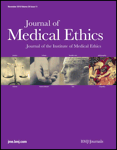In July, the editors of Cancer Biology & Therapy published a retraction remarkable for its scope. Apparently, nearly everything dishonest authors can do to doctor a manuscript, these authors did.
The paper, “Overexpression of transketolase protein TKTL1 is associated with occurrence and progression in nasopharyngeal carcinoma,” initially appeared on the journal’s website in January 2008. It came out in print three months later, in the April issue, and has been cited 8 times since, according to Thomson Scientific’s Web of Knowledge.
The authors were Song Zhang, Jian Xin Yue, Ju Hong Yang, Peng Cheng Cai and Wei Jia Kong, of Huazhong University of Science and Technology in Hubei, China. It will be quite clear why we listed all those authors in a moment. Continue reading Best of Retractions Part III: Whatever can go wrong …









